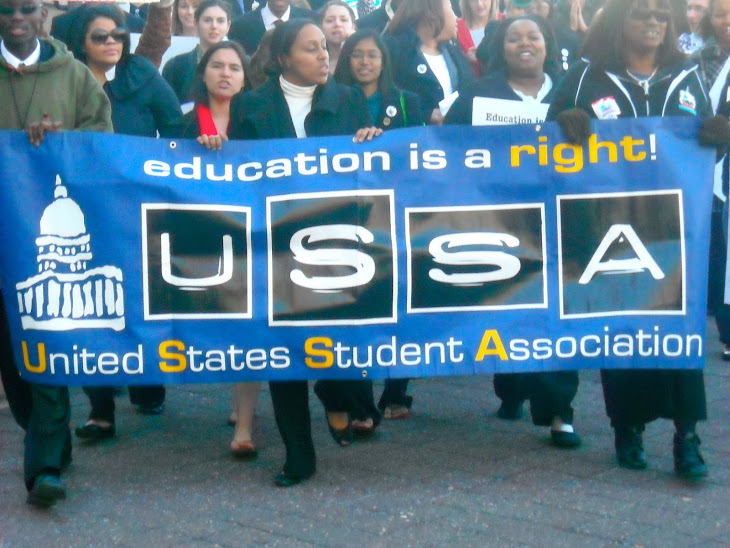Overlooked in the debate over which institutions are 'too big to fail' for the sake of stabilizing America's economy is the future strength of our country: America's youth.
Young Americans nationwide will suffer lasting damage from the financial crisis. My generation, so-called "Millennials," or people born after 1981, is on track to be the first generation in decades to be worse off than our parents. It's no coincidence that this 30-year period has also been the Era of Deregulation culminating in a perfect storm of unemployment, education divestment, and debt that is disproportionately hindering the prosperity of America's youth. That's why Congress must pass a vigorous financial reform bill that includes a strong Consumer Financial Protection Bureau (CFPB).
While the nationwide unemployment rate is hovering just under 10 percent, a staggering 37 percent of 18- to 29-year olds are unemployed or involuntarily out of the workforce. This is the highest share among this age group in more than three decades and the effects of this crisis will be lasting. A recent study by Lisa Kahn at the Yale School of Management found that even 15 years after college graduation, wages are still lower for those who entered to labor market when unemployment was high.
Often when the economy is struggling, those out of work turn to education as a way to improve themselves and their job prospects. Not this time. The ubiquitous state fiscal crises have resulted in massive higher education budget cuts, forcing tuition and fee rates to soar sky-high, keeping a college degree out of reach for countless Americans. Considering the innumerable economic and social benefits college graduates provide for their communities, efforts to raise the cost of college, especially during a recession, are misguided at best and fiscally devastating at worst.
As my generation, along with the rest of America, tries to keep its head above financial water, the heavy shackles of debt continue dragging down more and more young people. The above-mentioned rising cost of college has forced two-thirds of students to take out loans, with the average graduate accumulating nearly 25 thousand dollars in student loan debt! Private student loans, which lenders aggressively market to young students, include variable interest rates as high as 18 percent, rigid repayment plans, and increasingly high default rates.
President Obama recently signed a law that reforms the student loan system by diverting public funds from private lenders to federal financial aid; still, this will not help the nearly three million American students who took out loosely-regulated private loans in 2007-08. Left with enormous levels of private student loan debt, many college graduates begin their post-collegiate lives with no job prospects and already in a financial hole. Instead of taking the job of their dreams, starting a family, or buying a home, many of today's college graduates spend what income they can generate on loan repayments and are moving back in with their parents.
So what's the solution? While there is no silver bullet, the passage of a strong financial reform bill would be an effective step forward. Currently, Congress is crafting the final version of a financial reform bill, the likes of which have not been seen since FDR's New Deal. The Senate, which recently passed the Restoring American Financial Stability Act (s. 3217), is working with members of the House of Representatives to finalize the bill before the Independence Day Recess. Both the House and Senate versions include the establishment of the CFPB. This agency would, for the first time in American history, be completely devoted to protecting consumers from the financially devastating practices of irresponsible lending. Thus far, the Senate has accepted the House's proposal to give the CFPB the supervision authority over nonbanks that provide and offer private student loans, such as institutions of higher education.
However, the Senate has rejected two key student provisions from the House that must be included in the final version. The first is a proposal that would require private loans to be certified by higher education institutions and require students to be informed of any federal loans for which they are eligible. This is critical because many students, who are unknowingly eligible for low-interest and affordable government loans, take out private loans that leave many young people in enormous debt. Secondly, the Senate has rejected a House proposal to give the CFBP enforcement authority over banks that make a under $10 billion. If this provision is not included, Sallie Mae, the nation's largest private student lender, will weasel out from under the authority of the CFBP. This would be an extremely hypocritical and counterintuitive move, considering the federal government just spent months justifying historic reforms to the student loan system because of the financial strain lenders like Sallie Mae put on students. Congress must pass a financial reform bill with a strong CFPB that continues the Obama Administration's policies of putting students over banks and investing in college affordability.
America's youth is a demographic that is too big to fail. If Congress fails to act on financial reform, or does not create a strong CFPB, young people will continue to enter adulthood with suffocating debt levels, high unemployment, and few ways to help grow the economy. Students have already been conducting in-district and Capitol Hill lobby visits making their voices heard on this critical issue. The United States Student Association calls on Congress to stand with America's millennial generation and pass strong financial reform.
The United States Student Association, U.S. Public Interest Research Group, and Demos released a briefing paper titled, "Risking our Future Middle Class: Young Americans Need Financial Reform" that details the need for a strong CFPB.

No comments:
Post a Comment